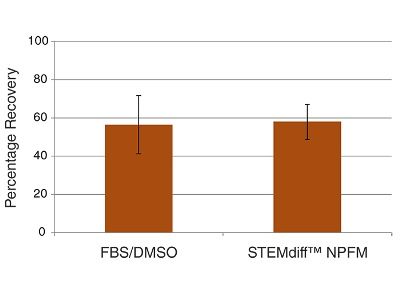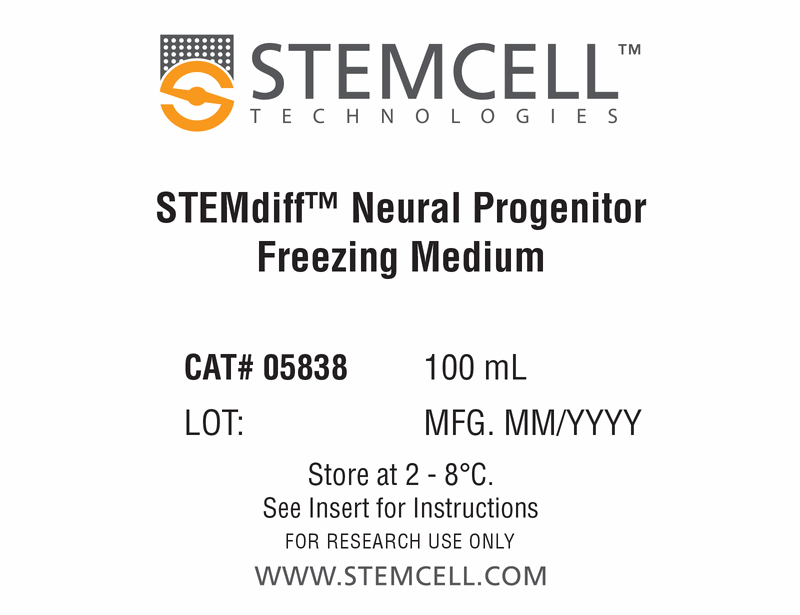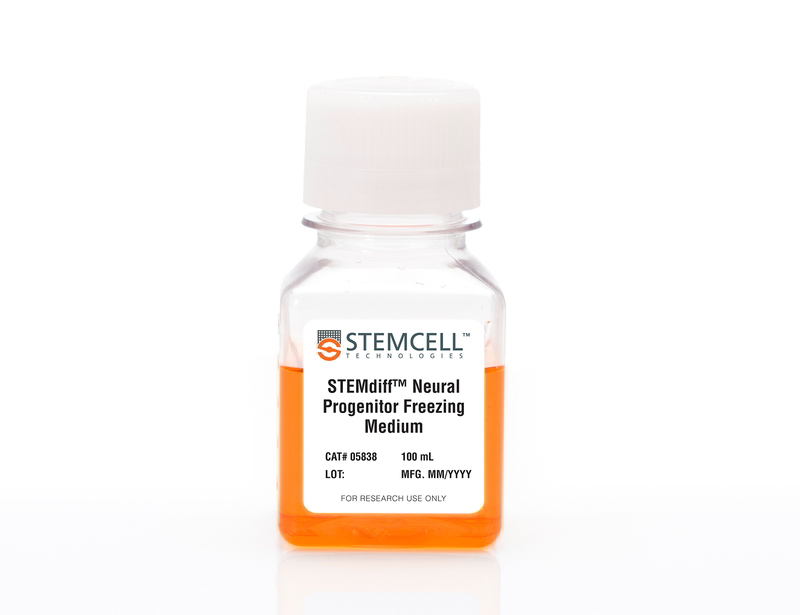概要
STEMdiff™ Neural Progenitor Freezing Medium is a serum-free medium for cryopreservation of neural progenitor cells (NPCs) derived from human embryonic stem (ES) cells and induced pluripotent stem (iPS) cells. This freezing medium is optimized for the cryopreservation of NPCs generated using STEMdiff™ Neural Induction Medium (Catalog #05835) and cultured in STEMdiff™ Neural Progenitor Medium (Catalog #05833). NPCs can be frozen at any point post-neural induction, with reproducibly high recovery rates. Post-thaw, NPCs display healthy morphology, express NPC markers, and retain the potential to expand and differentiate into neurons.
数据及文献
Publications (1)
Stem Cell Reviews and Reports 2016 AUG
Functionalizing Ascl1 with Novel Intracellular Protein Delivery Technology for Promoting Neuronal Differentiation of Human Induced Pluripotent Stem Cells
Robinson M et al.
Abstract
Pluripotent stem cells can become any cell type found in the body. Accordingly, one of the major challenges when working with pluripotent stem cells is producing a highly homogenous population of differentiated cells, which can then be used for downstream applications such as cell therapies or drug screening. The transcription factor Ascl1 plays a key role in neural development and previous work has shown that Ascl1 overexpression using viral vectors can reprogram fibroblasts directly into neurons. Here we report on how a recombinant version of the Ascl1 protein functionalized with intracellular protein delivery technology (Ascl1-IPTD) can be used to rapidly differentiate human induced pluripotent stem cells (hiPSCs) into neurons. We first evaluated a range of Ascl1-IPTD concentrations to determine the most effective amount for generating neurons from hiPSCs cultured in serum free media. Next, we looked at the frequency of Ascl1-IPTD supplementation in the media on differentiation and found that one time supplementation is sufficient enough to trigger the neural differentiation process. Ascl1-IPTD was efficiently taken up by the hiPSCs and enabled rapid differentiation into TUJ1-positive and NeuN-positive populations with neuronal morphology after 8 days. After 12 days of culture, hiPSC-derived neurons produced by Ascl1-IPTD treatment exhibited greater neurite length and higher numbers of branch points compared to neurons derived using a standard neural progenitor differentiation protocol. This work validates Ascl1-IPTD as a powerful tool for engineering neural tissue from pluripotent stem cells.
View All Publications



 网站首页
网站首页



